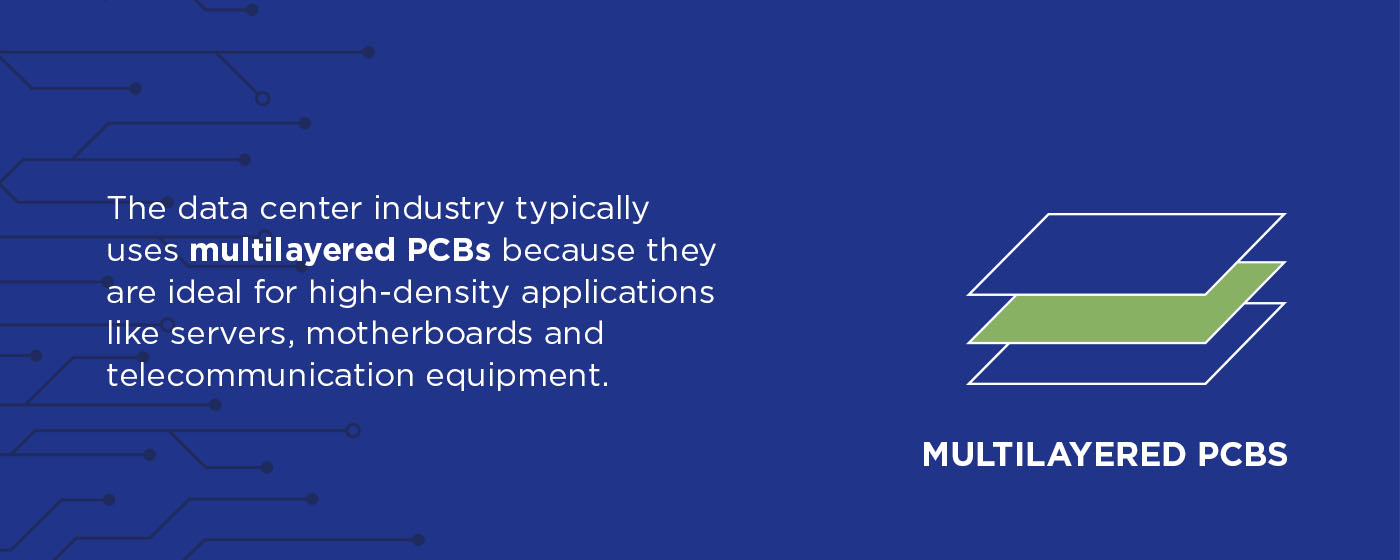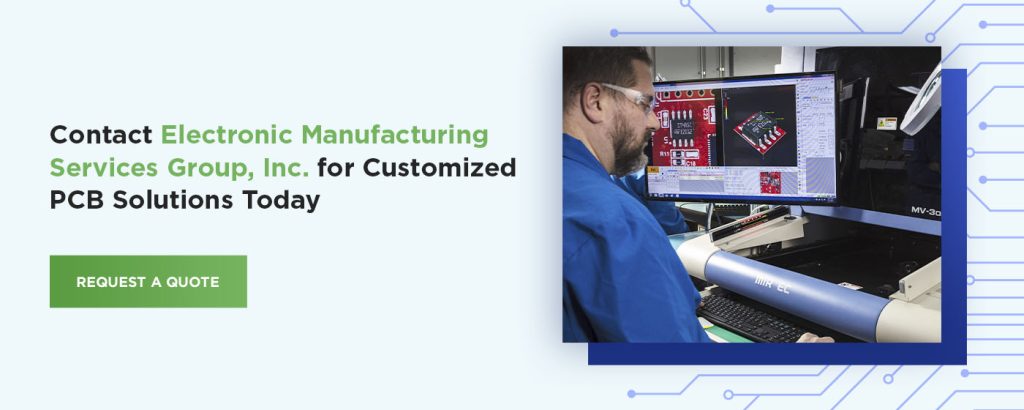PCB Design and Manufacturing for Data Centers
A printed circuit board is at the core of your data center’s pivotal technologies. These units are critical for maintaining your competitive edge as your industry demands higher performance and efficiency.
Effective design and manufacturing are integral to robust PCB applications in different industries. Printed circuit board design for data centers will keep your operation on the cutting edge and achieve optimal electronic functionality by enabling your devices to support high-speed computing, edge processing, big data analytics and Internet of Things connectivity. This guide explains PCB design and manufacturing considerations for your data center.









